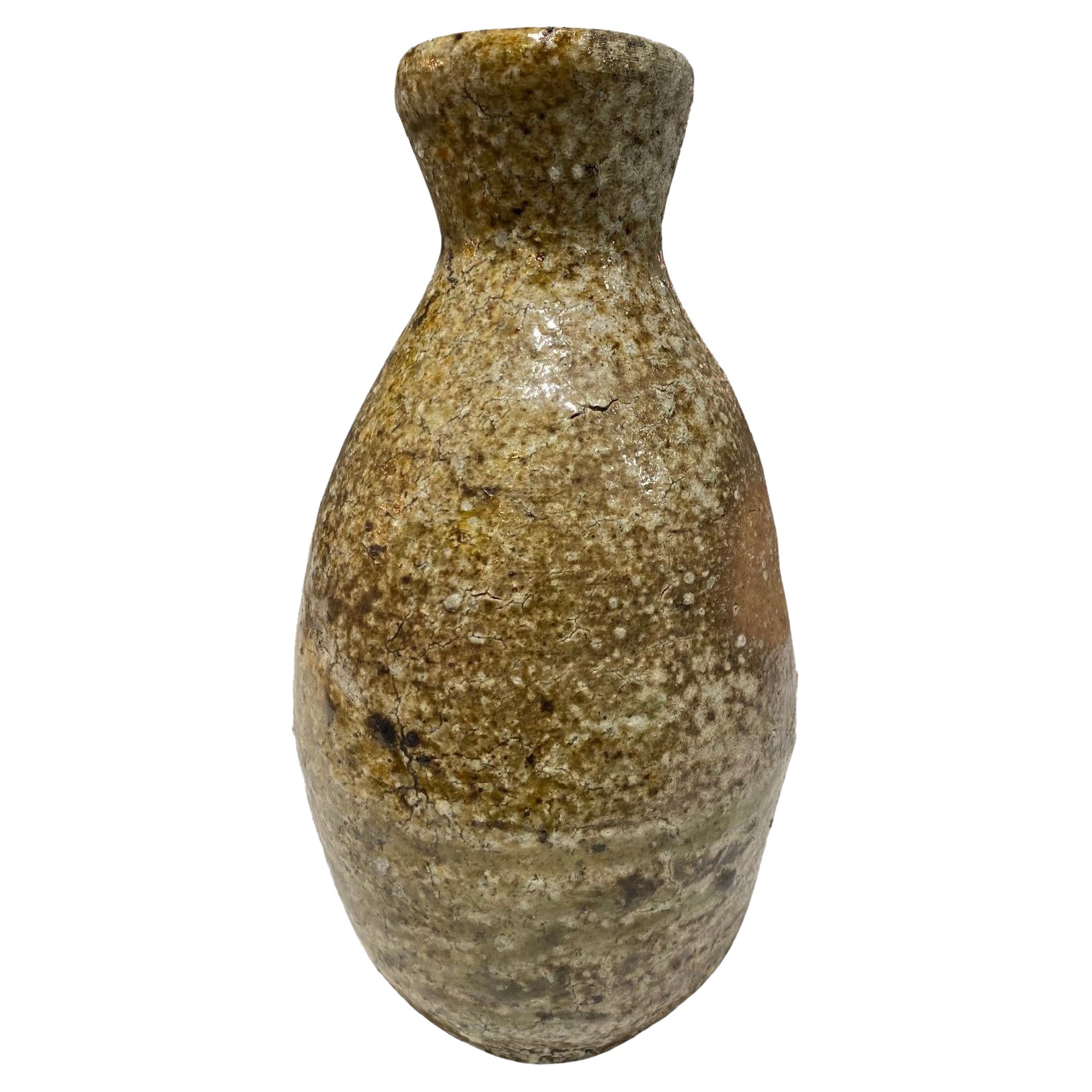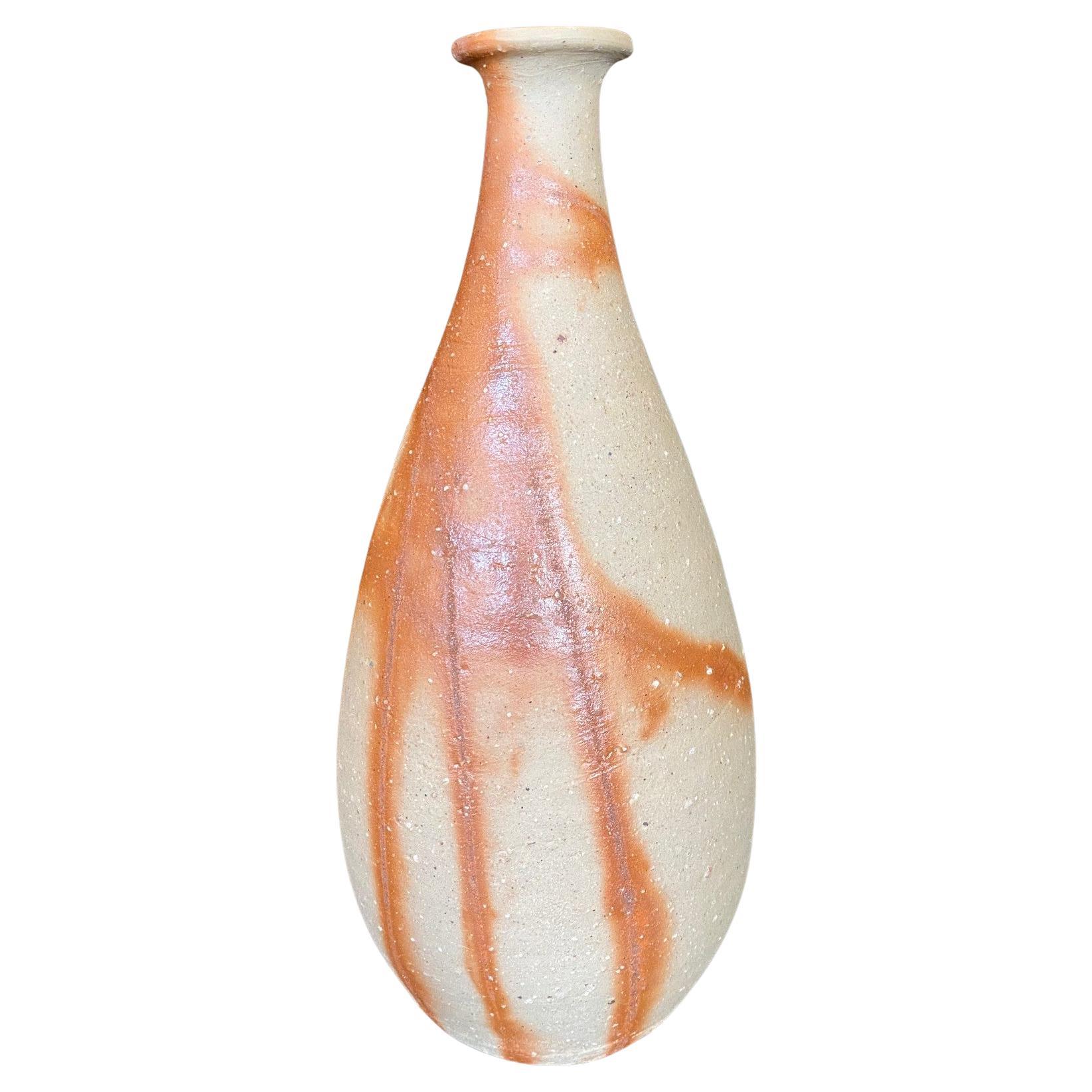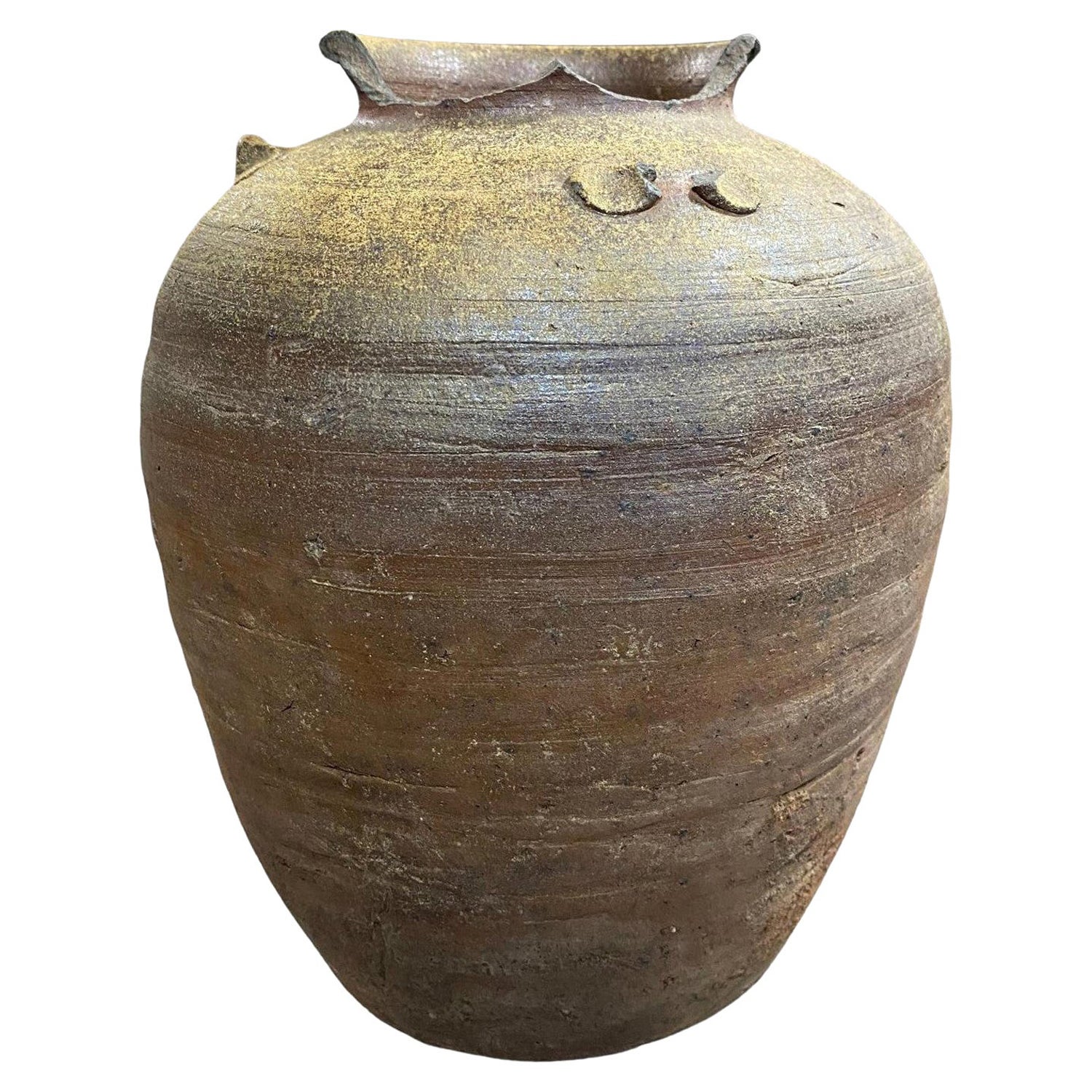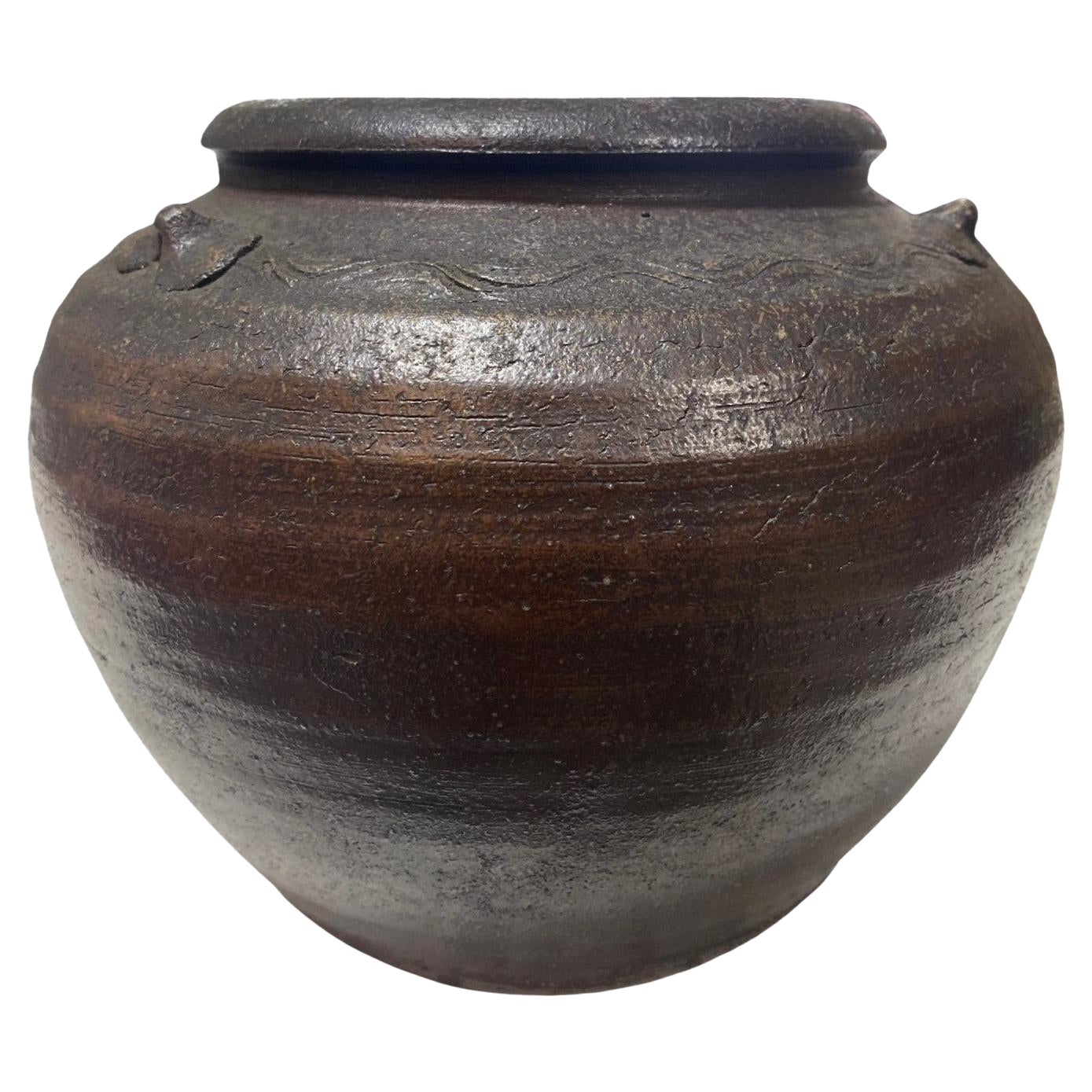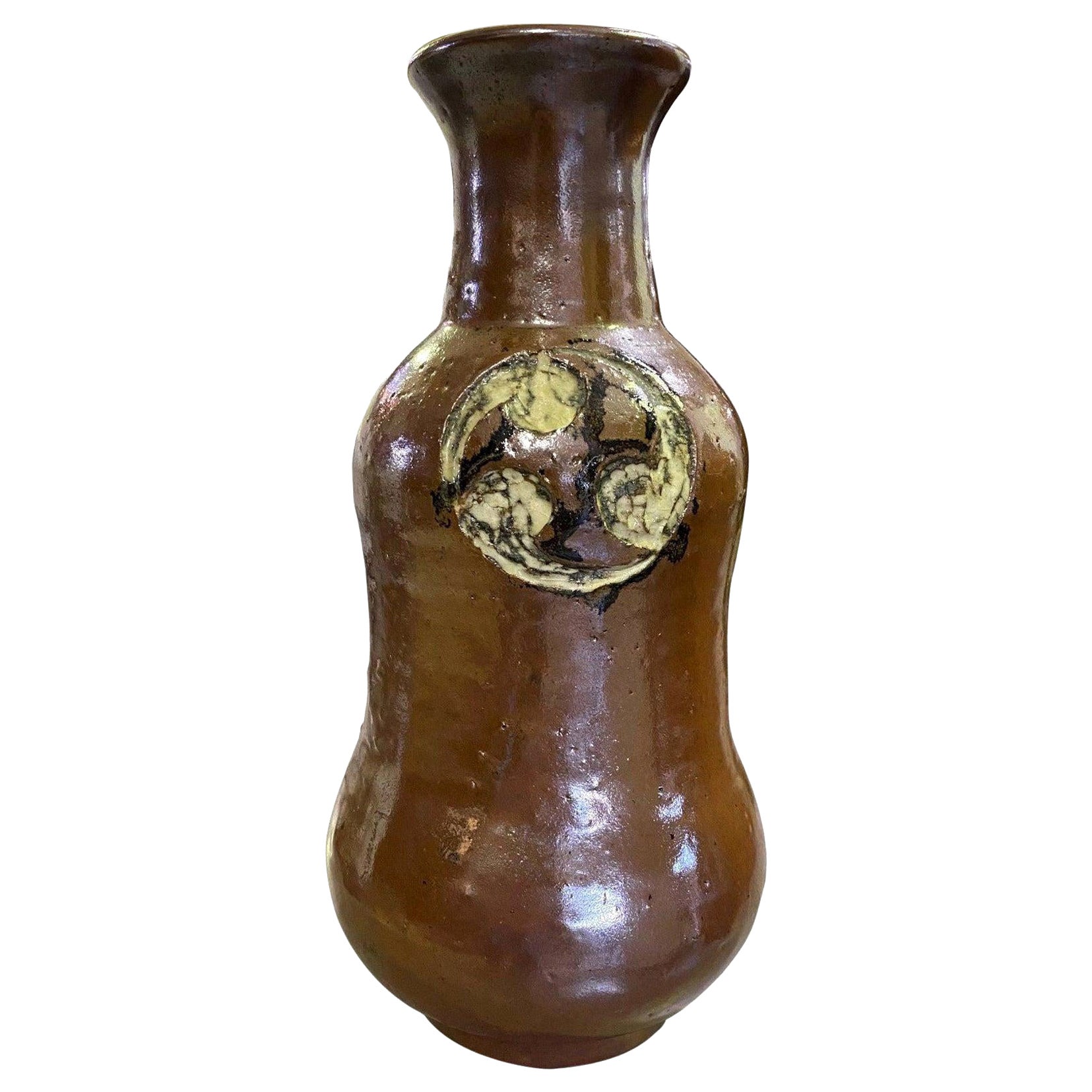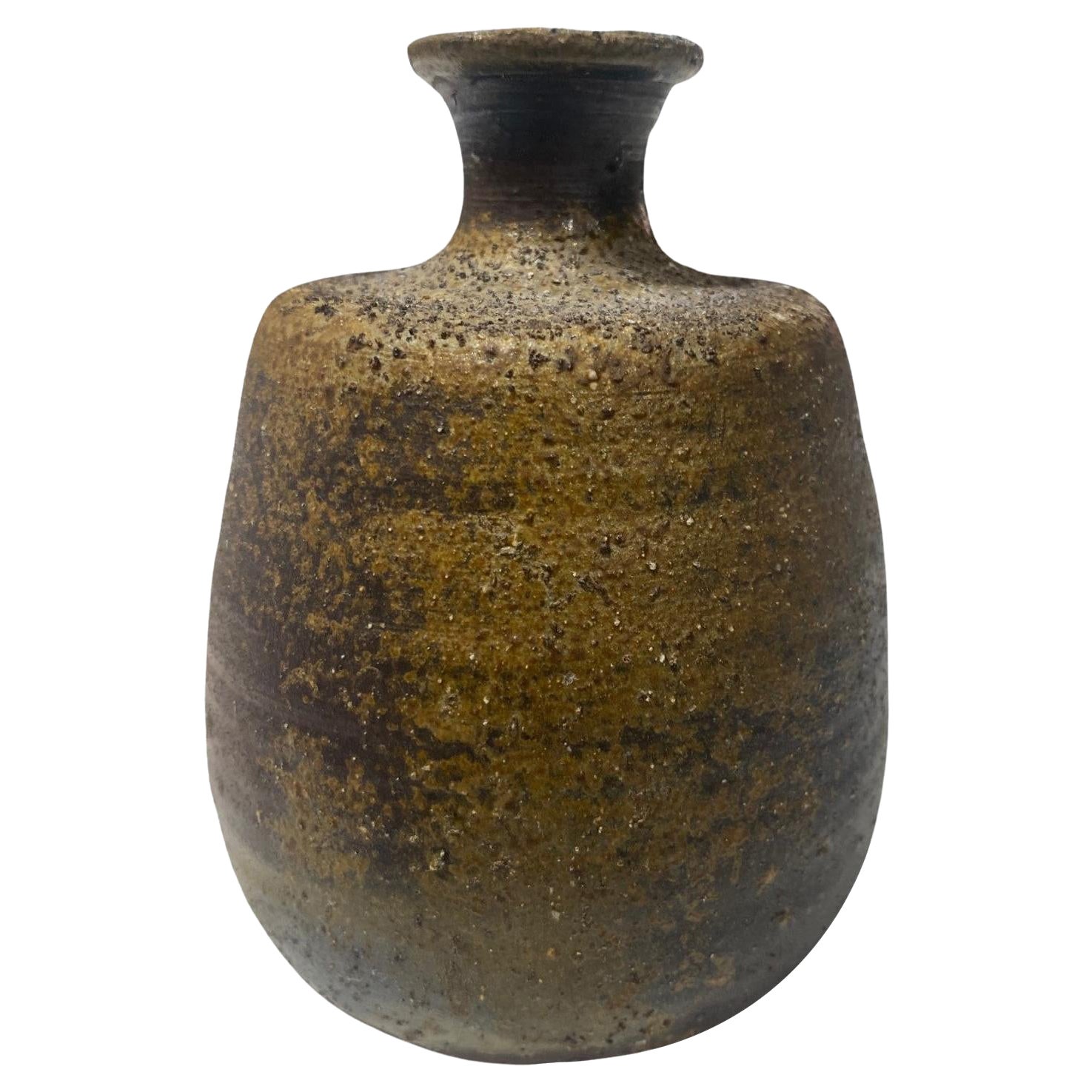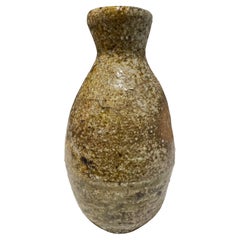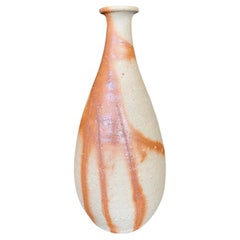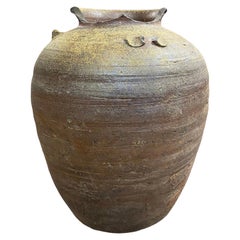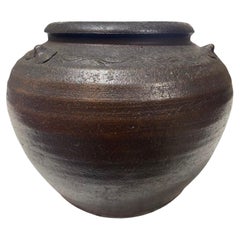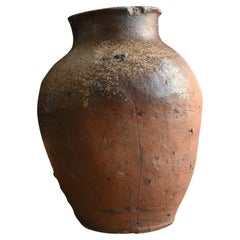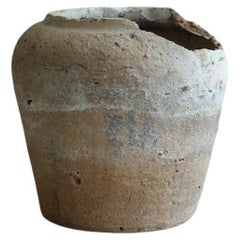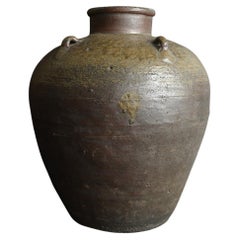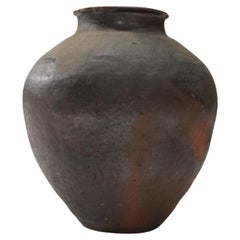Artículos similares a Rosanjin Kitaoji Signed Japanese Bizen Pottery Vase & Original Signed Sealed Box
¿Quieres más imágenes o vídeos?
Solicita imágenes o vídeos adicionales al vendedor
1 de 21
Rosanjin Kitaoji Signed Japanese Bizen Pottery Vase & Original Signed Sealed Box
3912,59 €
Acerca del artículo
An absolutely gorgeous hand-crafted Bizen Yaki Ware pottery vase by Japanese master potter Kitaoji Rosanjin (1883-1959) who was arguably one of if not the greatest artists/ceramicists of the 20th century. Rosanjin (whose real name was Kitaoji Fusajiro. In 1922 he changed his name to Kitaoji Rosanjin which translates as “foolish mountain man”) was famed in Japan for many talents - calligrapher, ceramicist, engraver, painter, lacquer artist, and restaurateur.
It is noted that Rosanjin had one of the greatest ceramics collections in Japan in the early part of the 20th century but the Great Tokyo earthquake of 1923 destroyed most of his personal collection so he began making pottery himself to replace it. In 1926 he established his own kiln in the Yamasaki neighborhood of Kamakura. In 1946, after the war, he continued to make his ceramics and art while also opening a restaurant in the Ginza district of Tokyo which catered to upper-echelon Americans. In 1951, he invited sculptor/artist Isamu Noguchi and his wife Yoshiko Otaka the actress to live on his property in Kamakura, where they stayed for several years. In 1954, Rosanjin accepted an invitation from the Rockefeller Foundation to hold a solo exhibition of his works in New York City at the Museum of Modern Art. Afterward, he visited Europe, where he would meet with the esteemed artists Pablo Picasso and Marc Chagall. In 1955, one of his Oribe ware works was designated an Important Cultural Property of Japan by the Japanese government. A few years later in 1959, Rosanjin was designated a Living National Treasure by the Japanese government but was one of the very few nominated people to indignantly decline the honor (he did so twice). The rumor was that he felt insulted that the Japanese government had offered this status to a former studio assistant of his first, and this was how he chose to express his dissatisfaction.
The vase features Rosanjin's incised signature on the base and comes with the original signed protective box that also has a written authentication of the work and signature of Kuroda Totoan ( also known as Kuroda Ryoji 1905-1987), Rosanjin's most famous and noted art appraiser.
The work was likely made in the kiln that famed Japanese Bizen potter and Human National Treasure Kaneshige Toyo help build for Rosanjin (Rosanjin was a master of many style of Japanese pottery including Oribe, Shino, Shigaraki, etc...).
A very rare, beautiful, one-of-a-kind work. Would clearly stand out in any Japanese Asian ceramics/pottery or art collection. Rosanjin's work has become quite scarce to find, especially in such impeccable condition with the original signed/sealed wood box and the written authentication by Kuroda Totoan. A coveted combination indeed. Not many of his Bizen Yaki Ware pieces remain today.
Vase dimensions: 11" high, 6" diameter
Box dimensions: 12.25" high, 7" wide, 7" deep.
- Creador:Rosanjin Kitaoji (Artista)
- Dimensiones:Altura: 31,12 cm (12,25 in)Anchura: 17,78 cm (7 in)Profundidad: 17,78 cm (7 in)
- Estilo:Showa (Del período)
- Materiales y técnicas:
- Lugar de origen:
- Época:
- Fecha de fabricación:Mid-20th Century
- Estado:The vase is in excellent vintage condition with no discernable flaws, cracks, chips, etc.... The wood box has wear (the top lid is cracked) and stains consistent with age and use (please see photos). Quite beautiful, unique, and engaging overall.
- Ubicación del vendedor:Studio City, CA
- Número de referencia:1stDibs: LU2254343157162
Sobre el vendedor
5,0
Vendedor Platino
Vendedores premium con una calificación de +4,7 y tiempos de respuesta de 24 horas
Vendedor de 1stDibs desde 2016
927 ventas en 1stDibs
Tiempo de respuesta usual: <1 hora
- EnvíoRecuperando presupuesto…Envío desde: Van Nuys, CA
- Política de devolución
Partes de esta página se han traducido automáticamente. 1stDibs no puede garantizar la exactitud de las traducciones. El inglés es el idioma predeterminado de este sitio web.
Garantía de autenticidad
En el improbable caso de que haya algún problema con la autenticidad de un artículo, ponte en contacto con nosotros en un plazo de 1 año para recibir un reembolso total. DetallesGarantía de devolución de dinero
Si tu artículo no es como se describe, sufre daños durante el transporte o no llega, ponte en contacto con nosotros en un plazo de 7 días para recibir un reembolso total. DetallesCancelación dentro de las 24 horas
Tienes un período de gracia de 24 horas para reconsiderar tu compra, sin preguntas.Vendedores profesionales aprobados
Nuestros vendedores de primera clase deben cumplir estrictos estándares de servicio para mantener la integridad de nuestros anuncios.Garantía de igualación de precios
Si encuentras que un vendedor publicó el mismo artículo por un precio menor en otro lado, igualaremos ese precio.Entrega global de confianza
Nuestra red de transporte de primera ofrece opciones de envío especializado en todo el mundo, que incluye envío personalizado.Más de este vendedor
Ver todoSugimoto Sadamitsu Jarrón de cerámica japonesa Shigaraki firmado Arte Wabi-Sabi
Maravilloso jarrón de cerámica Shigaraki del famoso alfarero/ceramista japonés y maestro zen Sugimoto Sadamitsu (1935-). Nacido en Tōkyō en 1935, Sugimoto es un maestro autodidacta y...
Categoría
siglo XX, Japonés, Showa, Cerámica
Materiales
Gres
Jun Isezaki Jarrón grande de cerámica japonesa Bizen Yaki firmado Caja sellada
Un gran jarrón Bizen Yaki Ware maravillosamente realizado por el famoso maestro alfarero japonés Jun (Jyun) Isezaki (nacido en 1936), que fue designado Tesoro Nacional Viviente de Ja...
Categoría
mediados del siglo XX, Japonés, Showa, Cerámica
Materiales
Loza de barro, Alfarería
Antiguo jarrón japonés Momoyama Edo Bizen Ware Cerámica Arte Wabi-Sabi Tsubo
Impresionante jarrón/jarra/recipiente de gres Bizen, fabricado a finales del periodo Momoyama (1568-1600) / principios del periodo Edo (1603-1867). La cerámica Bizen yaki es un tipo ...
Categoría
Antiguo, siglo XVI, Japonés, Edo, Cerámica
Materiales
Gres
Jarrón Tsubo de cerámica japonesa Bizen firmado por Kaneshige Toyo Tesoro Nacional
Preciosa vasija/jarra/jarra tsubo antigua de tres orejas de cerámica Bizen de cocción oscura, obra del renombrado maestro alfarero/artista japonés Kaneshige Toyo (1896-1967), que pre...
Categoría
mediados del siglo XX, Japonés, Showa, Cerámica
Materiales
Gres
Jarrón de cerámica japonesa Shoji Hamada Mingei Kakiyu Kaki con caja firmada y sellada
Por Shoji Hamada
Un jarrón de calabaza exquisito, bellamente elaborado y diseñado por el maestro alfarero japonés Shoji Hamada, que presenta un buen ejemplo de su afamado y rico vidriado Kaki o caqui...
Categoría
mediados del siglo XX, Japonés, Showa, Cerámica
Materiales
Gres
Jarrón para botella de sake de cerámica japonesa Bizen firmado por Kaneshige Toyo Tesoro Nacional
Precioso jarrón antiguo para botella de sake shibui (tokkuri) de cerámica Bizen, perfectamente moldeado y equilibrado, obra del renombrado maestro alfarero/artista japonés Kaneshige ...
Categoría
mediados del siglo XX, Japonés, Showa, Cerámica
Materiales
Gres
También te puede gustar
Antiguo Jarrón de Cerámica Japonesa Siglo XV-XVI/ Jarrón Wabi-Sabi/Jarrón Tokoname
Es un tarro muy antiguo en Japón.
Se trata de una cerámica llamada loza Tokoname.
Tokoname es un horno situado en la prefectura de Aichi, Japón.
Se dice que se originó alrededor del ...
Categoría
Antiguo, siglo XVI, Japonés, Otro, Jarrones
Materiales
Alfarería
Jarrón Pequeño Japonés Wabi-Sabi, Periodo Meiji 1750-1850
Se trata de una antigua cerámica japonesa.
Es del periodo Meiji (1860-1900).
Se utilizaba como recipiente para apagar el fuego.
Esta pieza tiene un color y una textura preciosos.
Es...
Categoría
principios del siglo XX, Meiji, Antigüedades
Materiales
Alfarería
Jarrón antiguo japonés de loza Bizen / siglos XV-XVI / Jarrón wabi-sabi/Tsubo
Esta jarra de cerámica Bizen se coció en la región de Bizen, en la prefectura de Okayama. La cerámica Bizen es uno de los Seis Hornos Antiguos de Japón y se conoce como uno de los es...
Categoría
Antiguo, siglo XVI, Japonés, Otro, Jarrones
Materiales
Alfarería
Jarrón japonés antiguo Tsubo Florero Wabi-Sabi
Se trata de un antiguo jarrón japonés.
Hay una astilla en el peristoma.
Hay varias marcas de horno en el cuerpo.
Siempre te sugeriremos el mejor método de envío.
Ponte primero en co...
Categoría
Antiguo, siglo XIX, Japonés, Antigüedades
Materiales
Alfarería
Jarra de Cerámica Japonesa Antigua Siglo XVI-XVII/ Jarrón Wabi-Sabi/Tokoname
Tokoname es una región situada en la Prefectura de Aichi.
Es un centro de producción de cerámica con una historia muy antigua en Japón (alrededor del siglo XII).
Estas jarras se coc...
Categoría
Antiguo, principios del siglo XVII, Japonés, Edo, Jarrones
Materiales
Alfarería
Jarrón grande de cerámica japonesa antigua "Echizen ware"/1500s/Raro jarrón grande
Es "loza Echizen".
Echizen es un horno histórico situado en la prefectura de Ishikawa, Japón.
Se dice que se originó hacia el siglo IX.
Hay 6 hornos con una larga historia en Japón,
...
Categoría
Antiguo, siglo XVI, Japonés, Otro, Frascos
Materiales
Alfarería
